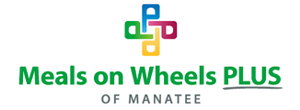Did you know that most Americans struggle with health literacy? Health literacy describes how much someone can obtain, process, and understand basic information and services to make appropriate health decisions, according to the Institute of Medicine. About a third of American adults have low levels of health literacy, the U.S. Department of Health and Human Services Reports. Only 12% have a high level of health literacy. However, even among the most welleducated, it’s easy to get confused by health information, be it complex details to explain health problems, information from a doctor, or medication instructions.
Gaining a better understanding of health information is crucial for everyone, for a few good reasons:
- With increasing health care costs, just about everyone needs to be a savvy, cost-conscious health consumer. Without a solid understanding of health information, you may not make decisions in the best interest of you or your family.
- If you don’t understand health information needed to manage a disease or condition, you could make a medical error—at its worse, that could lead to the need for serious medical care.
So just how do you boost your health literacy? Fortunately, we don’t all need to go to medical school to do it. Even if your professional or your daily activities are outside of healthcare, there are some simple steps you can take to improve your health literacy.
1. Ask your doctor questions when you don’t understand something. If you have a health issue that’s led you to set a medical appointment, write some questions in advance of an appointment, and share them with your provider. Let the medical assistant or another staff member who sees you before the doctor arrives know that you want to ask a few questions to better understand your care.
2. Repeat back any instructions you receive. This helps you confirm your understanding. Write down the instructions, or ask if the medical office will write the instructions down.
3. Keep a list of all medicines you take. Have this list ready in your phone or on paper, and bring it to your medical appointments. This way, your medical providers can make sure not to prescribe anything that works against other medicines you use. This list also comes in handy at the pharmacy, particularly if you’ve had prescriptions filled at more than one pharmacy.
4. Bring someone else with you to appointments. When you’re receiving medical care, especially when you’re sick, it can be hard to fully concentrate. Bring a trusted friend or family member who serves as a second set of ears or who can take notes. If you have trouble understanding English, ask for help from an interpreter.
Call Secure Aging to Find Out How We Can Help Seniors With Financial Management
At Secure Aging, we transform the weight of the world into a sigh of relief for our senior clients and their concerned family members. The mission of Secure Aging is to protect and preserve our client’s independence and dignity through careful and thoughtful financial and care management. As our clients age, it is their desire to remain independent and age with dignity. Our services protect our clients from talented con artists looking to exploit and deplete the financial resources of our vulnerable seniors. Call us at 941-761-9338, or visit us online at www.secureaging.com.
















